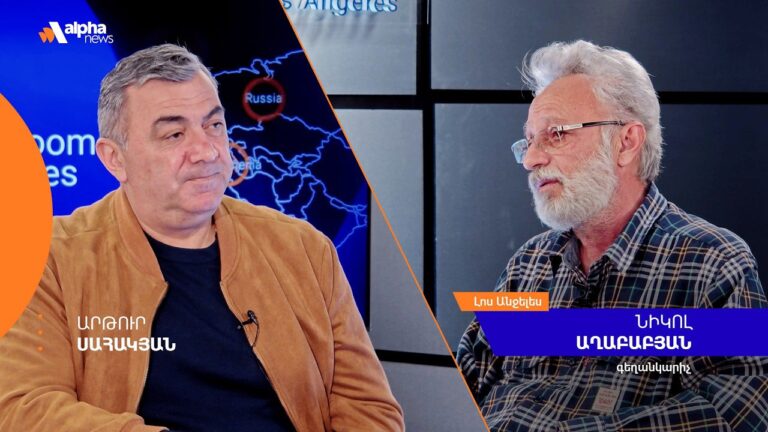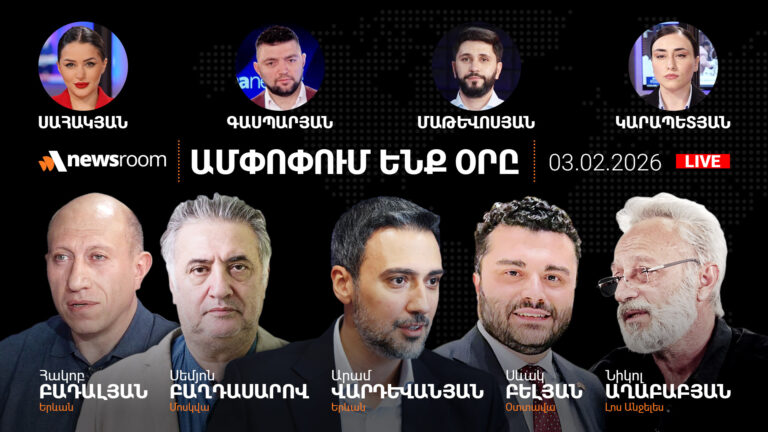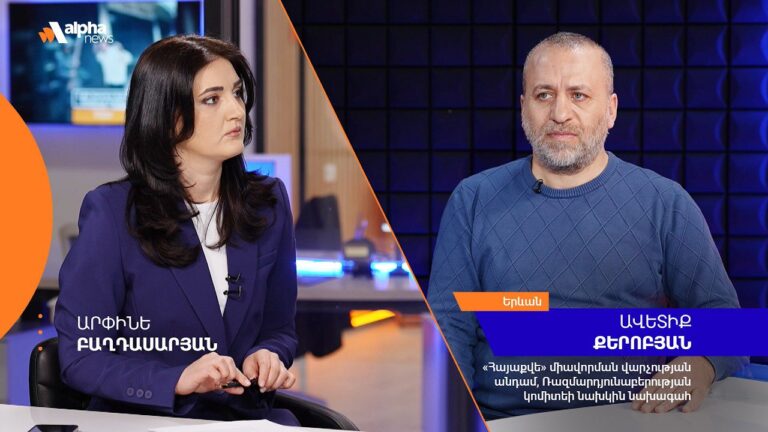Israel wants to bring a big war closer, and Iran wants to avoid it — Georgy Asatryan
Speaking with Alpha News, Expert of the Russian International Affairs Council (RIAC) Georgy Asatryan commented on Iran’s missile strike on Israel, the possibility of a large-scale war in the Middle East, and how it could affect the South Caucasus region.
“Globally speaking, we have the destruction of the current international system. And every actor in international relations strives to achieve their own goals. Iran had to respond to Israel. It was the strongest blow to Israel in recent years. And it was more serious than the first strike. If the first strike was more informative, because it was the first time and no one expected this, then the second strike was more significant. Some targets were hit, despite Israel’s statement. Yes, most of the missiles were intercepted, but in general, Iran has shown that it can strike at Israel. Anyway, the strike may not be catastrophic, but it can affect quite seriously.
There is also a psychological component because, unfortunately, in view of this whole situation, the peoples of these countries live in a rather difficult situation and spend a lot of time in bunkers. In this regard, Iran apparently proceeds from the fact that it will keep Israel in constant tension, that this may also have an effect due to the fact that such a political system in Israel and the opinion of the people, the majority of the population of Israel, will also depend on how the foreign policy will develop,” Asatryan said.
According to the expert, Israel wants to bring a big war closer, while Iran wants to avoid it or at least delay it.
“Some say that Iran’s nuclear program is at the core of this whole issue. Iran needs more time to achieve some tangible success, and Israel needs to have an ironclad reason, and that Israel’s allies, first of all, the United States and some other countries of the global West, support Israel and prevent this nuclear program from being completed. Iran is avoiding a major conflict, it is visible, it is obvious. Israel, in turn, is resolving its issues both in the north and in the south, trying to create security buffers and deprive Iran of its proxy forces,” Asatryan said.
Speaking about Israel’s operation in Lebanon, the expert said that Israel will try to influence the Lebanese political system and use it to weaken Hezbollah.
“I think they will build a buffer zone in southern Lebanon and will try to influence the Lebanese political system, change the Lebanese political system so that it becomes unfriendly to Hezbollah and a large part of the Lebanese population understands that a neutral or positive attitude towards Hezbollah will have a price for the Lebanese people of different faiths, different religious groups,” Asatryan said.
According to the expert, without the support of the United States, it will be more difficult for Israel to ensure its security.
“It should be noted that public opinion, including in the United States, regarding Israel and Israeli foreign policy is changing. Sooner or later, there may be some global paradigm shift within the United States. Without the support of the United States, it will be even more difficult for Israel and the Israeli leadership because their environment is very unfriendly, even if we are not talking about those political regimes that generally support Israel or take neutral positions, including Arab countries,” Asatryan stressed.
Commenting on the role of the United States in the Middle East and its ability to deter Israel from retaliating against Iran to avoid a major escalation, the expert said that the political influence of the United States is really weakening.
“Of course, it is a great nuclear power, a technological power, an economic power, but such political confusion within the United States, the election period calls into question the reasonability of political decision-making. And those allies that the United States has in the world may ask who will be there tomorrow, what is going on there at all.
Therefore, I think that there is no such unambiguous influence of the United States on Israel. But, at the same time, without the support of the United States, Israel cannot ensure its complete security in this region. And I think that the military and political leadership of Israel understands this well. They alone will not be able to cope with the threats they face.”
Speaking about how the escalation in the Middle East could affect the South Caucasus region, the expert said that a major war in the Middle East could allow different forces in the South Caucasus region to resolve their issues militarily. He critically assessed the foreign policy of the Armenian authorities amid existing threats.
“It seems to me that a big war, if it happens, may somehow allow different forces in the South Caucasus region to resolve all their remaining issues militarily. Here we see that Iran has its own interests in the region, and Israel also has interests related to the influence or possible projection of its power against Iran, using other countries. So, theoretically, if a big war starts, different forces can use this situation to their advantage and try to resolve their issues by force.
Armenia is pursuing a strange policy, which, it seems to me, is not understood either in the West, nor in the East, nor in the South, nor in the North. So, the only thing we can do is observe what all this will lead to,” Asatryan concluded.







